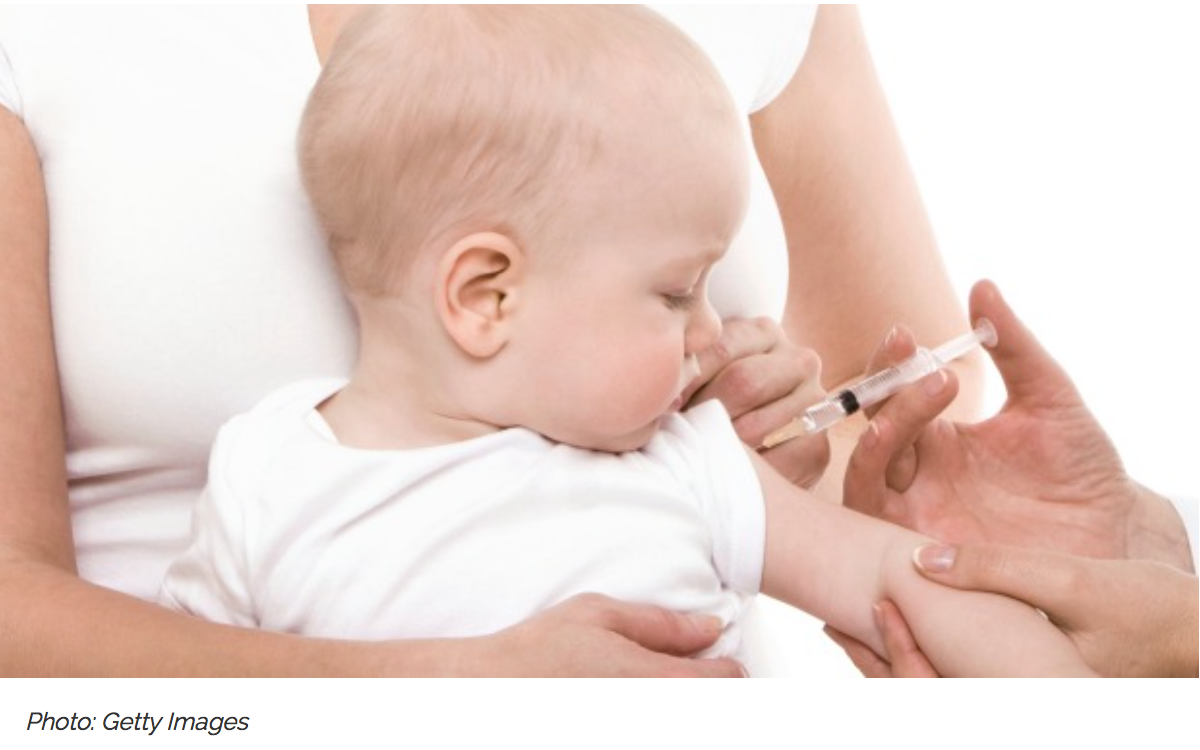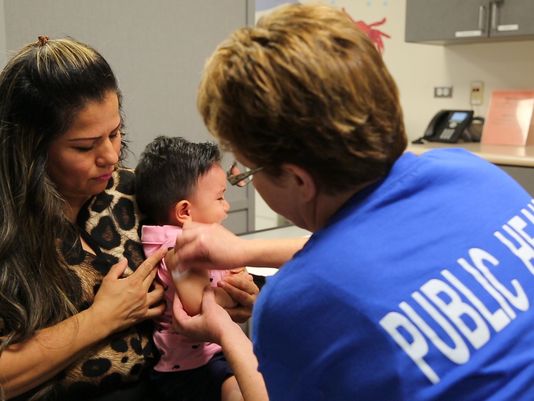How to keep kids calm and happy when they get their needles
In new research published in the journal Pain, a team of researchers from York University’s OUCH Lab (Opportunities to Understand Childhood Hurt) analysed 202 parent-child pairs. The children were observed during their 2,4,6 and 12 month vaccinations and then again at ages 4-5 years.
“We observed how these children behaved before their needles and after their needles when they were infants and preschoolers,” said lead researcher Rebecca Pillai Riddell. “We also observed how parents interacted with their children, and the types of things they said to their children during infancy and at the preschool age.”
Parents were also asked to rate how scared they were prior to the immunisations, and how scared they thought their children were.
Speaking to Radio Canada International, Pillai Riddell described the findings as a shock.
“When we first started this study we were hoping to show that when babies expressed a lot more pain when they were young (being immunised) that that pain would actually … make them more scared when they were older and got their preschool needles,” she said.
Instead, the team discovered that how sensitive the caregiver was – especially at 12 months – actually lead to the children having less fear. As such, Pillai Riddell describes the impact of parents and their behaviour during vaccinations as “immense”.
“We found that parent behaviour during infancy, as well as parent behaviour at the preschool age, were the biggest predictors of child distress before a needle, above and beyond any other variables,” said Riddell.
So what can parents do to support their kids during vaccinations?
The team subsequently developed an ABCD list for parents and caregivers to use during their child’s immunisations.
- The caregiver should Assess his or her own Anxiety
- the caregiver should take deep Belly Breaths to calm him or herself
- be Calm, Close to the baby, and Cuddle
- Distract the baby, perhaps not immediately, but shortly after the initial shock of the needle.
A video also shows how to help parents navigate vaccinations in their babies and older children.
In addition to the above tips, the video suggests that parents use their “normal speaking voice” because, although babies may not understand words, they do understand tone. Parent should also be positive before, during and after vaccinations.
When it comes to older children, caregivers are advised to:
- acknowledge their child’s pain, but avoid focusing on it by apologising for the needle or criticising the child’s behaviour (ie, don’t say “Don’t be a baby”)
- use distraction. Activities that involve multiple senses (sight, touch and hearing) are the most effective
- give children lots of praise
- allow kids to watch the needle if they want to – for some children, this helps them to cope better.
And one last tip from my friend, a pediatrician: don’t tell your kids that the doctor will give them a needle if they’re misbehaving. Yes, I’m told that actually happens.
Read more: http://www.essentialbaby.com.au/baby/baby-health/how-to-keep-kids-calm-and-happy-when-they-get-their-needles-20160701-gpw8oy#ixzz4DXZ35R00
Follow us: @essentialbaby on Twitter | EssentialBabyAU on Facebook

